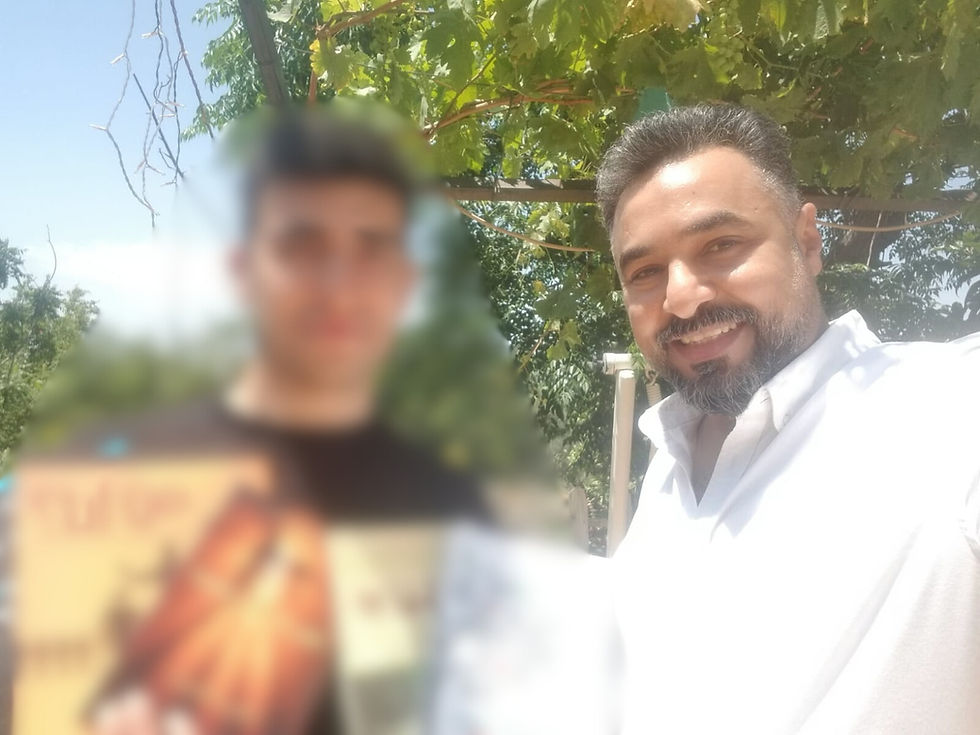Is Your Faith Tattooed on Your Wrist? 1/3
- Dr. Wahid Wahba

- Jun 15, 2021
- 3 min read

“Yea, and all that will live godly in Christ Jesus shall suffer persecution” 2 Timothy 3.12 This week, we were asked twice the same question by two different friends. The questions go something like, how are Americans responding to 4G3’s mission of ‘the persecuted church’? We recognized that when a Middle Eastern Christian speaks about persecution, it does not necessarily mean the same thing to a Westerner. For a Westerner, the picture that comes to mind when persecution is mentioned is chopped heads and burnt churches. But for any Middle Eastern Christian, persecution starts the day we are born, when our religion is written on our ID and on our birth certificate. Starting that day, a Christian will be treated differently by the Muslim majority. Add to that the fact that your name or surname will always tell if you are a Christian. In the Middle East, there are only Muslims and Christians. You either belong to one or the other. Later on, in life, if a Christian wants to convert to Islam, he can easily change his ID to show his/her religion as Muslim. But if a Muslim need to change his/her ID to Christian, it is illegal. In fact, that person would be jailed immediately. What difference does it make to have your religion written in your ID? A lot. In school, whether it is a Christian or a public school, religion classes are obligatory. Muslims go to Islamic religion classes, and Christians go to Christian religion classes. This means that the children of Muslims who have turned to Christ cannot ask for their children to be put in Christian religion classes since they cannot change their IDs. But don’t get the notion that Middle Eastern Christians are embarrassed or that they try to hide their faith. Most Middle Eastern Christians have a cross tattooed on their right wrist. Anyone who greets them or shakes hands with them will know they belong to Jesus, giving the greeter a reason to persecute them. Many Christians have those tattoos, even children who are in elementary schools. While Westerners might be uncomfortable to see such a young child receive a tattoo, this tradition goes back centuries in Egypt. The Coptic Orthodox Church is one of the oldest Christian churches in the world. Mark, the Gospel writer, founded a Coptic community in Alexandria in the first century BC. Back then, children were marked with a cross to signify their belonging to Christianity. When Egypt was conquered by Muslims around 640 AD and placed under Islamic control, the practice of tattooing increased dramatically. Christians were forced to convert to Islam. Those who refused were marked with a cross on their wrist – and forced to pay religious taxes. It was a sign of ostracism back then, but today, the cross carries a positive meaning. Persecution is subtle in the Middle East. Imagine you going into Target and not being able to use the coupons you have, or to buy at sale price because you are a Christian. Imagine living in a place where your faith made you an outcast. Perhaps it would cost you financially or would impact your career opportunities. Imagine that being a Christian meant you were mocked in school or were shunned by your friends. This is what happens to Middle Eastern Christians. In many rural areas, Muslim shop keepers will not sell to Christians; hospitals will not admit emergency Christian patients or admit a woman in labor if she is a Christian. This is what we mean by persecution. It’s a day in and day out occurrence that most of us have gotten used to. These are the types of people we minister to. When we say at 4G3 embolden displaced and persecuted Christians in the Middle East to stand firm in their faith, these are the people we minister to. Yes, we do minister to refugees, but we also want those people who are persecuted day in and day out to stand firm in their faith and to be bold to share Jesus despite covert persecution.



Comments